AT&T pulls out of T-Mobile deal
The mega bucks deal is ditched, leaving AT&T and Deutsche Telekom wondering what could have been.


AT&T has ditched its $39 billion bid for Deutsche Telekom's wireless unit T-Mobile USA, in the face of fierce regulatory opposition.
AT&T will have to find another way to address its shortage of wireless airwaves while Deutsche Telekom has to go back to the drawing board on what to do with T-Mobile USA, the struggling US business it had desperately wanted to shed.
The failure of the deal, which was seen as a tough sell from the very start, may call AT&T chief executive Randall Stephenson's judgment into question as he was clearly surprised by the strength of regulatory opposition.
AT&T, which would have vaulted to first place in the US market if the deal succeeded, was so sure it would win approval that it even promised Deutsche Telekom a record break-up package that will cost it an eye-popping $4 billion this quarter.
Stephenson was caught red faced after promoting the deal on TV the same day the US Justice Department sued to block it. From August to late November many experts were puzzled by the companies' optimism they would win over the regulators.
"It was definitely a miscalculation (by AT&T)," said Steve Clement, an analyst at Pacific Crest Securities.
"I don't know that it's such a big deal to the extent that you're going to have people looking for a change of management (at AT&T). But they definitely miscalculated what they would be able to push through to regulators," he said.
Get the ITPro daily newsletter
Sign up today and you will receive a free copy of our Future Focus 2025 report - the leading guidance on AI, cybersecurity and other IT challenges as per 700+ senior executives
As for Deutsche Telekom CEO Rene Obermann, the break-up package will not be enough to soften the blow of losing a deal that has been described as "almost a dream come true" for the German telephone company. Now Obermann will have to either invest billions more in the US market or find a new way to exit the country.
"There are very few occasions when you are forced to walk away from the table with $4 billion in your pocket and still feel like you've just been short-changed," said Thomas Wehmeier of research firm Informa Telecoms & Media.
AT&T's Stephenson said the company would continue to invest as it looks to boost its capacity, but he also urged policy-makers to make additional spectrum available.
But the carriers' options for buying more spectrum were not immediately clear. While AT&T was fighting for approval of its deal, its bigger rival, Verizon Wireless, quietly forged an agreement to buy spectrum from cable operators.
The AT&T deal failure may have other companies thinking twice about acquisitions to bolster their competitive position.
Having to navigate "seemingly insurmountable regulatory hurdles is likely to shake the confidence of would-be consolidators to the core," Wehmeier said.
After announcing the deal in March, AT&T and Deutsche Telekom in November withdrew their application for Federal Communications Commission approval to focus on addressing Justice Department concerns.
But that plan backfired as the judge presiding over the Justice Department case criticised the withdrawal and gave AT&T and Deutsche Telekom an ultimatum to figure out whether they wanted to go ahead with fighting for the deal or not.
The deal, which was the biggest U.S. acquisition announced this year, was also the boldest move made by Stephenson since he took the helm at AT&T, whose previous CEO, Ed Whitacre, earned a reputation as the industry's most renowned deal maker.
Deutsche Telekom said the deal would not change its group forecast for 2011 expected earnings before interest, taxes, depreciation and amortisation (EBITDA) of around 19.1 billion euros ($24.9 billion).
"It's a bigger blow to Deutsche Telekom in that they were getting a good price for that mobile asset and I don't think there's an alternative that's nearly as good for them," Pacific Crest's Clement said.
Deutsche Telekom had planned to use the proceeds from the sale to pay debt, launch a 5 billion ($6.51 billion) share buyback and step up investments at home and in the rest of Europe.
Deutsche Bank, Credit Suisse, Morgan Stanley and Citigroup, which advised T-Mobile, and AT&T's banks, which included Greenhill, Evercore and JPMorgan, stand to lose a total of $150 million in fees, according to earlier estimates from ThomsonReuters/Freeman Consulting.
-
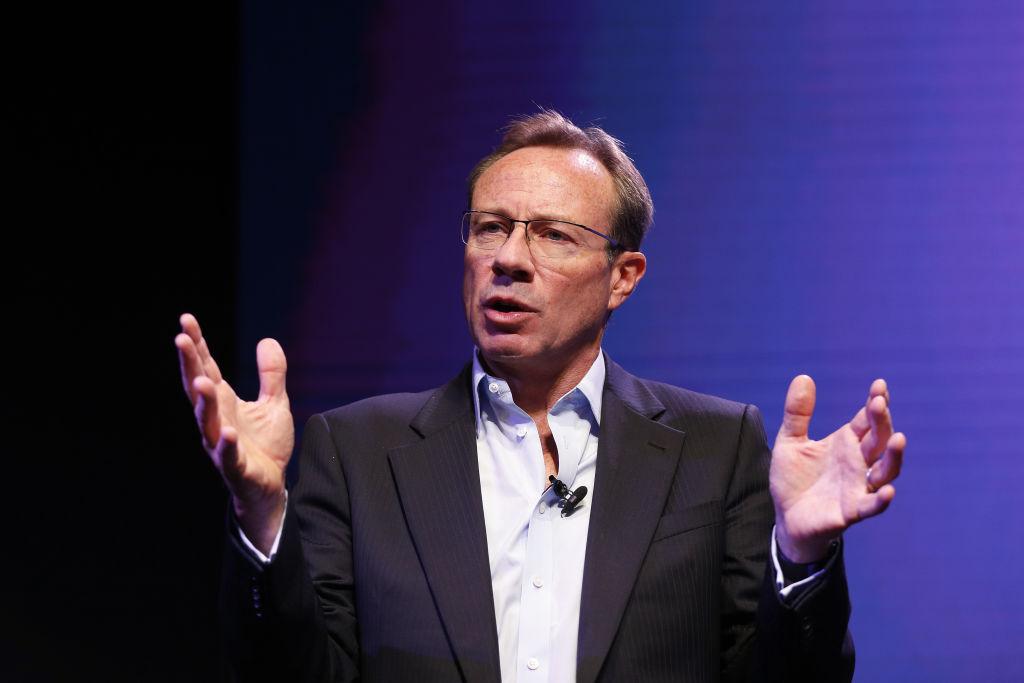 BT to slash 55k jobs by 2030 in “brutal” cost-saving plan
BT to slash 55k jobs by 2030 in “brutal” cost-saving planNews The telco aims to become more lightweight through layoffs and digitization
By Rory Bathgate
-
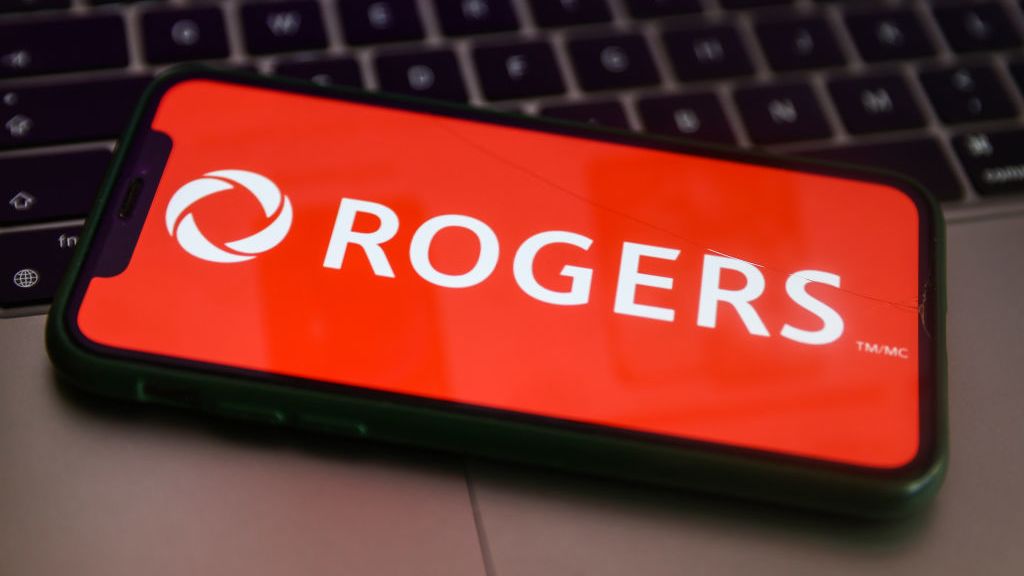 Rogers Communication to invest C$10 billion in AI, oversight following outage
Rogers Communication to invest C$10 billion in AI, oversight following outageNews Canadian telco giant has promised internal transformation after a network-wide blackout caused major disruption in Canada earlier this month
By Rory Bathgate
-
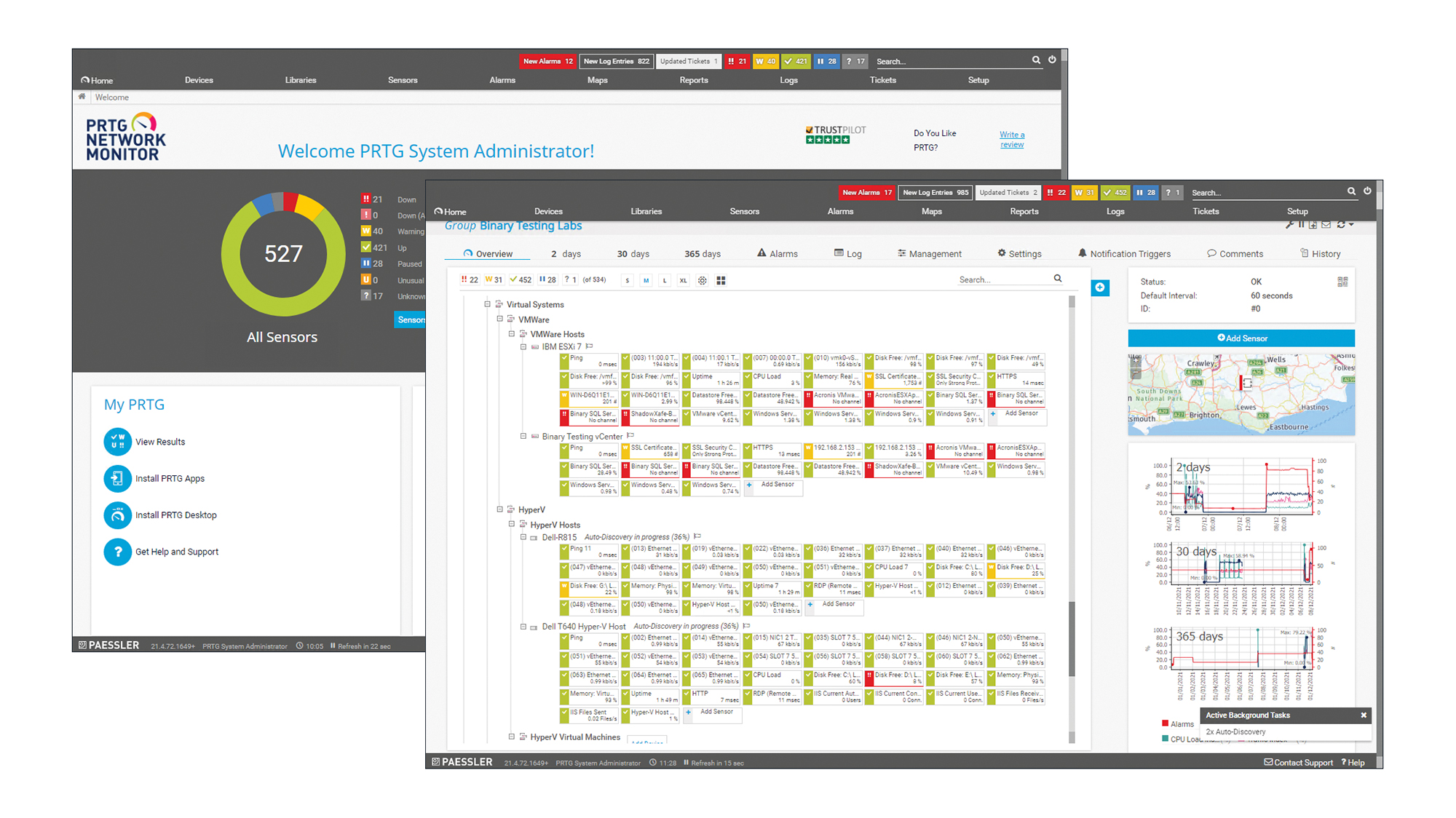
 Paessler PRTG Network Monitor 21.4 review: Hard to beat
Paessler PRTG Network Monitor 21.4 review: Hard to beatReviews This affordable and versatile monitoring solution suits all types of networks with a sensor for every occasion
By Dave Mitchell
-
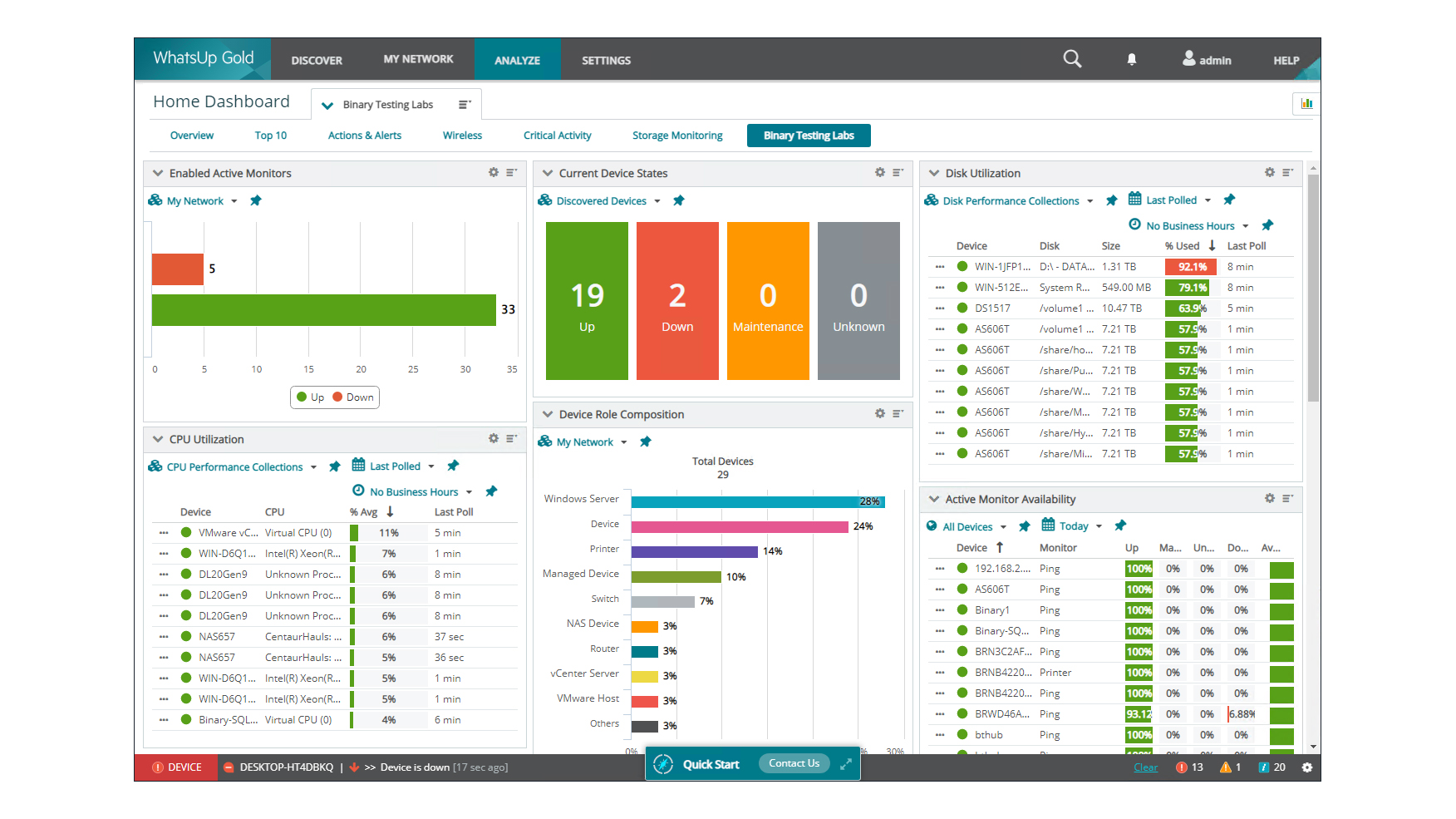
 Progress Software WhatsUp Gold 2021.1 review: More powerful than ever
Progress Software WhatsUp Gold 2021.1 review: More powerful than everReviews Add-ons increase the price, but WhatsUp Gold is easy to use and provides a superb range of monitoring tools
By Dave Stevenson
-
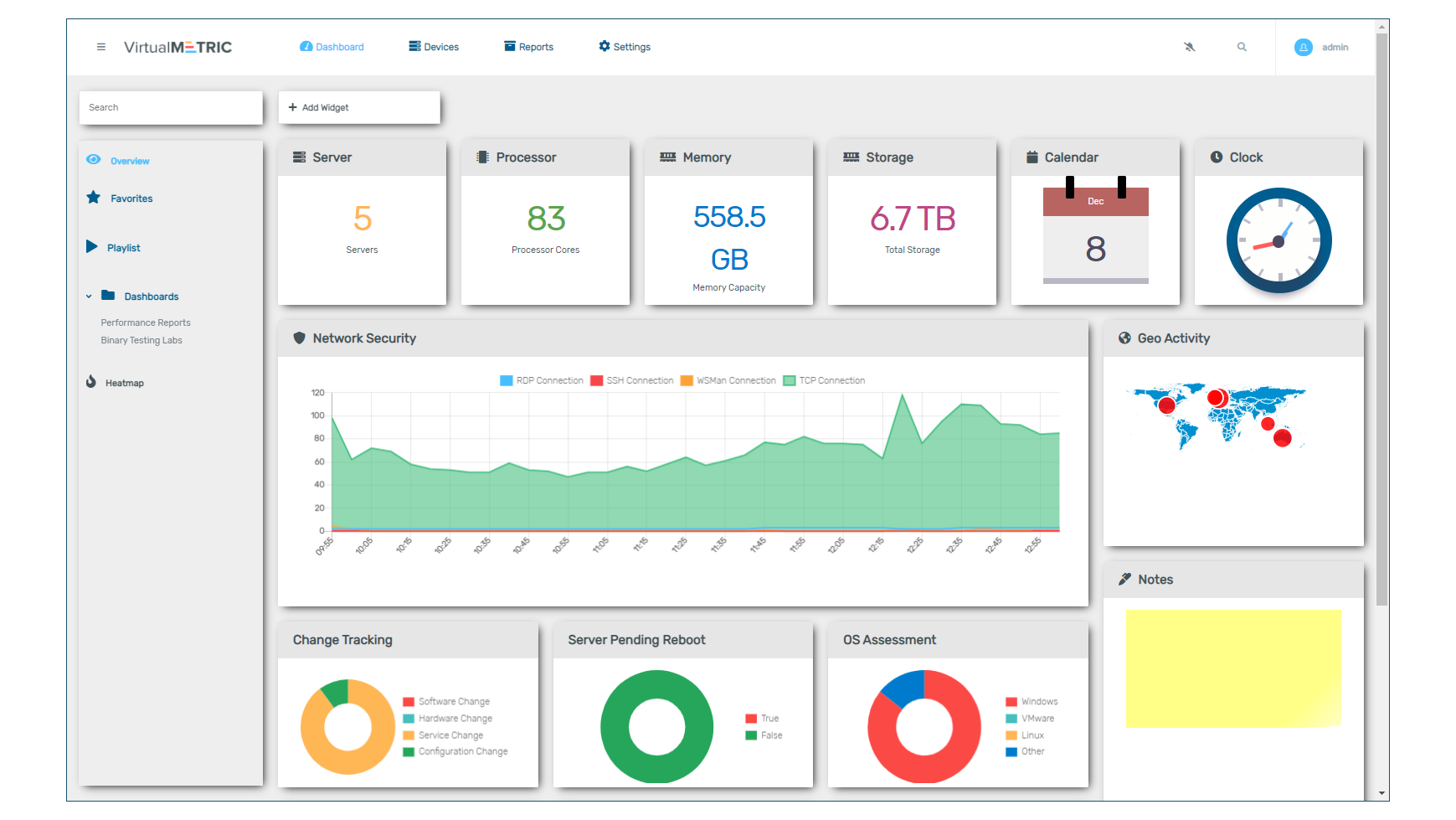 VirtualMetric review: Let down by poor support
VirtualMetric review: Let down by poor supportReviews This server-focused solution exposes a remarkable amount of information, but its flaws are hard to overlook
By Dave Mitchell
-
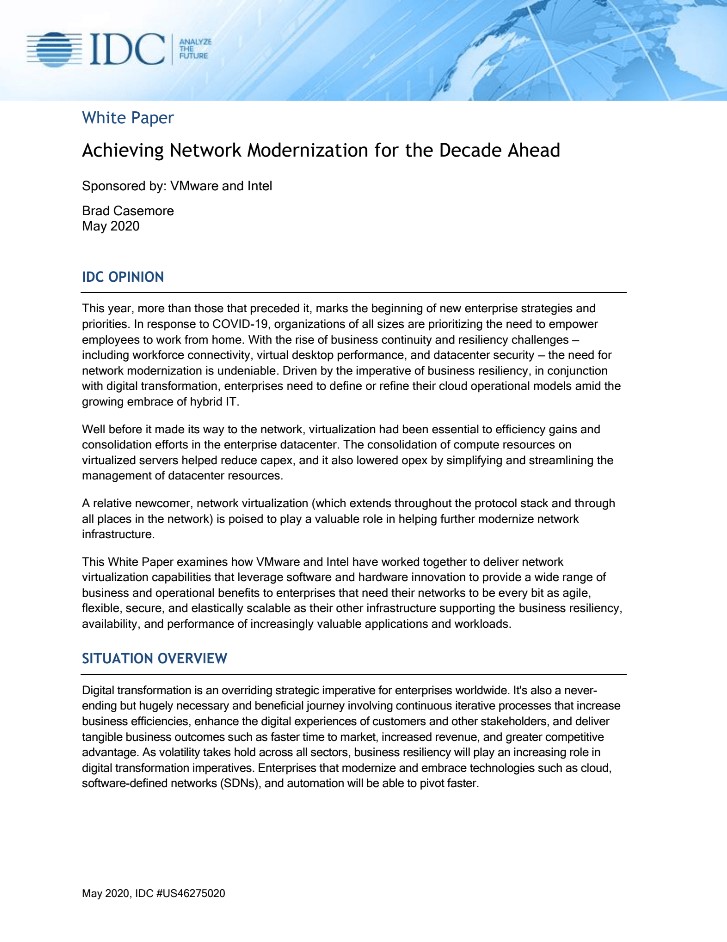 Achieving network modernisation for the decade ahead
Achieving network modernisation for the decade aheadWhitepaper An IDC whitepaper
By ITPro
-
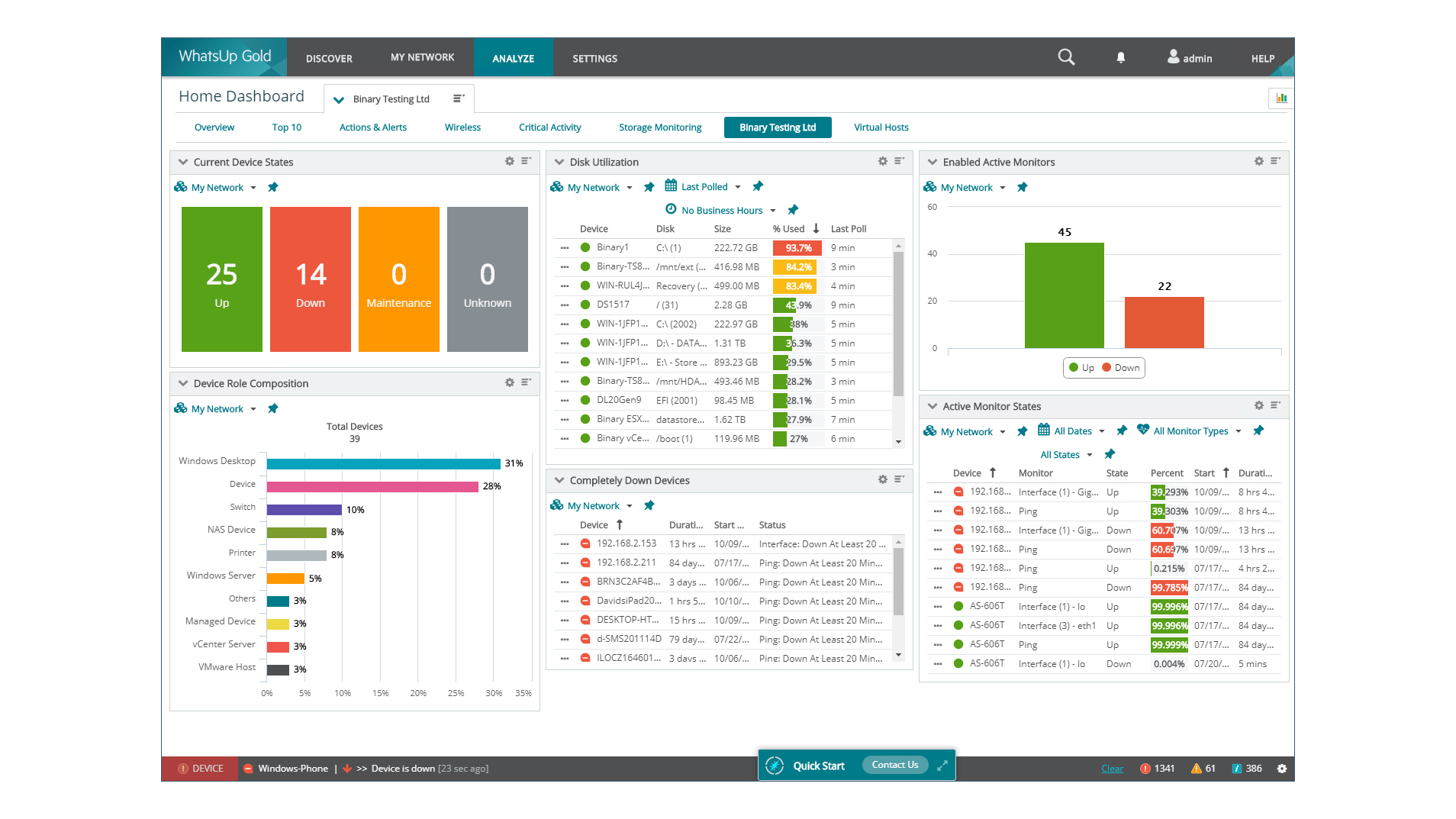 Progress Software WhatsUp Gold 2020 review: A strong choice
Progress Software WhatsUp Gold 2020 review: A strong choiceReviews Not everything is included in the standard package, but WhatsUp Gold makes network monitoring a joy
By Dave Mitchell
-
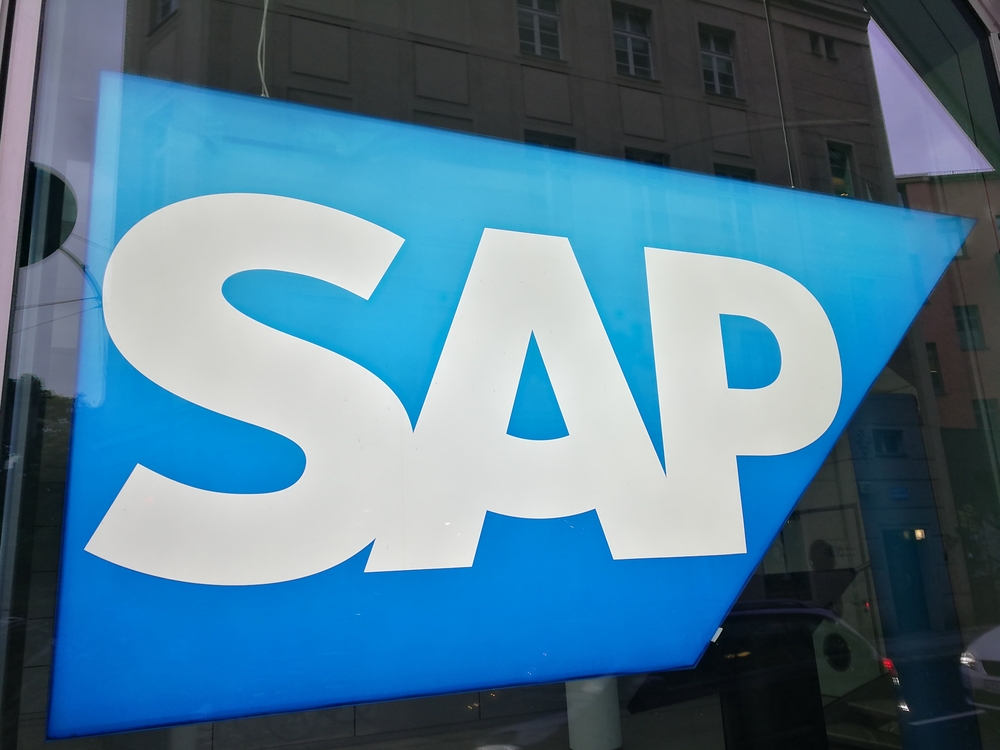 NTT and SAP strengthen partnership with expanded services
NTT and SAP strengthen partnership with expanded servicesNews Extended partnership will enable NTT and SAP to serve as each other's customers, suppliers, and co-innovators
By Praharsha Anand

